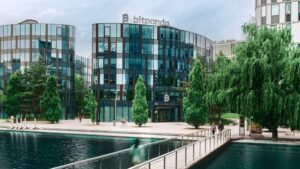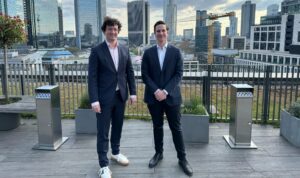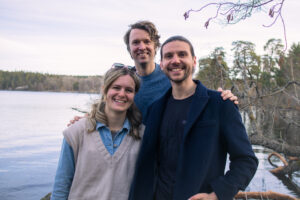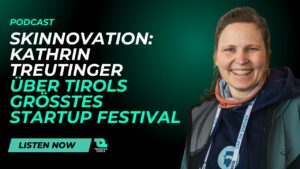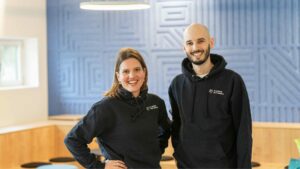Building the environment for product innovation in Bulgaria: What do we need to change in education and mindset?
One of the top questions we want to discuss and explore these days is how Bulgaria can successfully transition from an outsourcing destination to a product innovation hub.
So, we invited Andrey Bachvarov for a chat with us as he is someone who has dedicated a significant amount of effort to that cause.
Bachvarov is a serial entrepreneur and a General Manager of staffing company BICA Services. As such he was one of the people who helped bringing the German media group ProSiebenSat.1 to open an R&D center in Sofia.
Following his experience in the energy sector and passion for AI, Bachvarov has also founded and invested in Power-Drone, a startup that uses automated drones for predictive maintenance of energy infrastructure.
Below are some highlights from our video interview with him.
Trending Topics: One of the goals we have for The Big Reset conference is for more people to switch from crisis mode to an entrepreneurial mindset for dealing with the challenges in front of us. By now, you can already call yourself a serial entrepreneur but how did it all start for you? Was there а point in time when your perspective towards problems and obstacles changed?
Andrey Bachvarov: I actually got fired you from a very senior position so I didn’t have much else to do – I had to basically reinvent myself. And you know for a lot of people to become entrepreneurs something dramatic happened to them. They either get tired of what they do or they found something to believe in. Quite often something you believe in is not shared by others, so it’s a very simple rule: if you know you’re part of the system and you like it – you will basically stay. If you believe there is something new to be done which is not necessarily shared by the existing status quo – either a company or you know culture or environment you just move on and start inventing your own things. What I can say is that it’s never about money.
You have a Ph.D. in Computer Science. Is there an algorithm for turning Bulgaria into a high-tech product hub? How would you prioritize the next steps that need to be taken in that direction?
The biggest thing we have to work on is education, for sure. The other is to really work on products. Product ownership, product management – those are things that are not taught in universities. What I would share from my PhD perspective of teaching other students is a change in mindset. What is not taught at universities is the push to innovate. A part of our education system is basically – be careful to study what you’re taught to do and kind of give it back. It’s not the way to innovate products, right.
What we need to do in this country is to also believe more in what we are able to do. We need to believe in ourselves. We have enough capacity to do that right now. We can take all the startups, all the initiatives happening, and show that we are really creating stuff that is competing on the world level and I can tell that those people are all young guys right as they’re not as contaminated as we from the old way of educating ourselves.
If we focus on reforms and initiatives in education, where should more effort and investment go? Public education, private academies, corporate accelerators/ incubators that ‘teach’ local big companies to think like startups?
I think we need to identify all good practices that are already happening and reinject them in the education system. I’d see this to be run by private enterprises and once these private enterprises are successful, then that example can be intelligently copy-pasted into public education.
Your second point was about mindset. How should we go about building an innovation culture in Bulgaria?
Lead by example is one thing. It should be a concentrated effort of the whole community and should start from a very early age. Telerik Academy is teaching digital skills to 1-st grade kids – this is something that has to be employed by a lot of the corporate guys as well.
And, it should not be happen only in the capital – so we need to have a big debate on how this should apply to other cities in Bulgaria.











